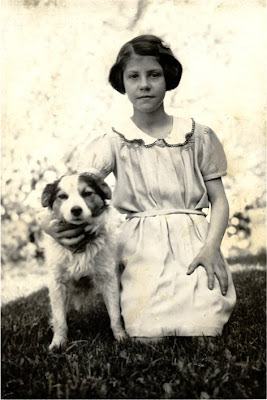Sepia Saturday: Ellis and Eliza Zaring Ellis
Ellis Ebenezer Ellis
was born June 13, 1836 in Old Town
in Hampshire County, Virginia.
Hampshire County was in the part of Virginia
that was later carved off to create West Virginia.
Ellis was the son of David Ellis (1782 - 1852),
a man of Welsh Quaker descent,
and his second wife Sarah Jane Farmer (1805 - 1873) Ellis.
When Ellis was quite young, perhaps two or three,
the family moved across the river to Allegany County, Maryland
and David farmed there for several years.
Shortly after the 1850 Census, the family gathered belongings
and moved to Mahaska County, Iowa.
Ellis would have been perhaps 15 or 16 when the family moved.
The distance from western Maryland to Mahaska County, Iowa
doesn't seem daunting now in the era of interstates.
But it was a major undertaking then
and likely took weeks and weeks of travel.
David died soon after arriving in Mahaska County
and Sarah Jane was awarded guardianship of the minor children.
While living in Iowa, Ellis met and married Elizabeth Jane Zaring,
known as Eliza, daughter of John and Martha "Patsy" Little Zaring.
They married in October 1859.
Their first child, John Rogers Ellis, was born in November 1860.
Eighteen months later, Eliza was pregnant again.
And for reasons that aren't clear,
Ellis and Eliza, their toddler son,
Ellis's widowed mother, his widowed sister Susan Ellis Zaring,
his brother Samuel Ellis (and wife Rhoda Kennedy Ellis),
unmarried brothers Thomas Townsend Ellis,
Hiram Lee Ellis -- so named because of David's mother's descent
from the Lee family of Virginia -- and Henry Clay Ellis,
and sister Sarah Caroline Ellis,
all joined forces and set out with a wagon train
led by John K. Kennedy.
Kennedy was Rhoda Kennedy Ellis's father.
I'll tell the story of the Kennedy Wagon Train
some other time,
but it was somewhat unusual.
We do know that Eliza Zaring Ellis
gave birth to Charles Ellis on July 13, 1862
along the way in a place called South Pass (Wyoming)
and the wagon train
camped for a couple of days before moving on
specifically because of the birth.
At the end of the Oregon trail,
the family settled in Walla Walla County,
Washington Territory.
Ellis hastily built a sod house,
dug into the ground with a roof covered with
turf and supported by a heavy timber center support pole.
Here they lived for the first winter.
In 1863, Ellis built a proper log cabin,
probably with the assistance of his brothers and brothers-in-law.
During the construction, the family continued to live in the sod house.
Sadly, the center support pole gave way
when Eliza and the children were in the sod house
and it collapsed on them. Eliza and little Charles survived
the calamity, but young John Rogers Ellis was killed.
Eliza and Ellis went on to have seven more children.
She died in 1909 in Spokane County, Washington.
Ellis died in 1920 in Spokane County, Washington.
Their descendants (I'm not one -- he was a great-great-something uncle)
can still be found in the Pacific Northwest today.
For more Sepia Saturday participants,
click HERE
.
some other time,
but it was somewhat unusual.
We do know that Eliza Zaring Ellis
gave birth to Charles Ellis on July 13, 1862
along the way in a place called South Pass (Wyoming)
and the wagon train
camped for a couple of days before moving on
specifically because of the birth.
At the end of the Oregon trail,
the family settled in Walla Walla County,
Washington Territory.
Ellis hastily built a sod house,
dug into the ground with a roof covered with
turf and supported by a heavy timber center support pole.
Here they lived for the first winter.
In 1863, Ellis built a proper log cabin,
probably with the assistance of his brothers and brothers-in-law.
During the construction, the family continued to live in the sod house.
Sadly, the center support pole gave way
when Eliza and the children were in the sod house
and it collapsed on them. Eliza and little Charles survived
the calamity, but young John Rogers Ellis was killed.
Eliza and Ellis went on to have seven more children.
She died in 1909 in Spokane County, Washington.
Ellis died in 1920 in Spokane County, Washington.
Their descendants (I'm not one -- he was a great-great-something uncle)
can still be found in the Pacific Northwest today.
For more Sepia Saturday participants,
click HERE
.




Comments
What a story of their lives! Can't wait to hear about the Kennedy Wagon Train! We had some family that traveled west like that, too.
again I am so impressed with the amount of detail that you have on all these family members....
i can't wait to read the story of the kennedy wagon train!